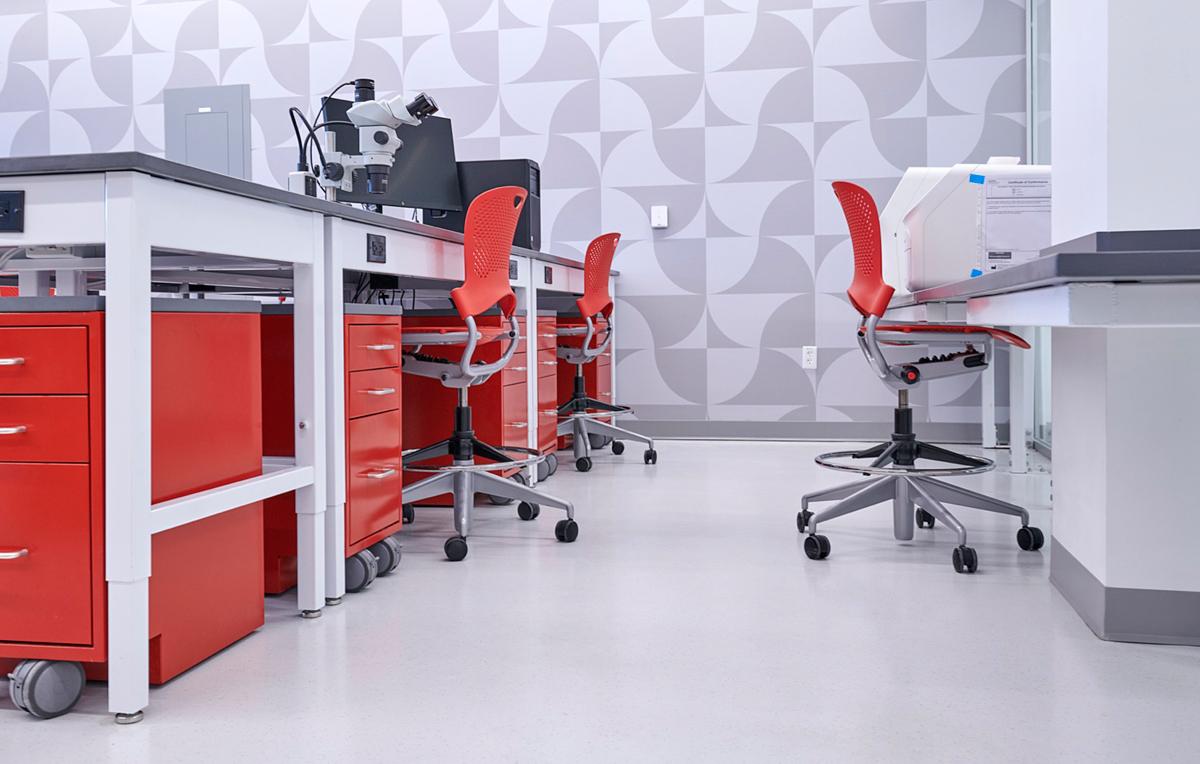Certified to AFFIRM™ Certified Sustainability Assessment for Resilient Floor Coverings
AFFIRM™ Certified
AFFIRM™ Certified is a sustainable certification for resilient flooring products that is based on compliance with the AFFIRM™ Certified: Sustainable Assessment of Resilient Floor Covering. The standard’s criteria include environmental, health and wellness, and social impact categories. The AFFIRM™ Certified label on a resilient flooring product provides the specifier and consumer assurance that the resilient flooring product is meeting sustainability requirements and is third-party certified.

The AFFIRM™ Certified standard is based upon criteria developed by a consensus process with AFFIRM™ Certified, which is accredited by the American National Standards Institute (ANSI) to develop American National Standards. ANSI’s accreditation verifies that AFFIRM™ Certified standards are developed through the involvement of stakeholders who are directly affected by the scope of the standard. A joint committee including public health, industry, and user members is responsible for proposing standards, voting on standards, ensuring public health and safety, addressing environmental concerns, and responding to requests for interpretations of AFFIRM™ Certified standards.
A unique feature of the AFFIRM™ Certified process is the review of all standards by the AFFIRM™ Certified Council of Public Health Consultants. The Council of Public Health Consultants is composed of representatives of professional organizations, federal and state regulatory agencies, and academic institutions, as well as nationally or internationally recognized individuals who have demonstrated leadership in the public health and environmental fields.
For more information on participation in standard development processes, see the AFFIRM™ Certified website.
What is resilient flooring and where is it used?
Resilient flooring refers to flooring materials that have a relatively firm surface yet characteristically have “give and take” when walked on. These include many kinds of vinyl floors – vinyl sheet flooring, vinyl composition tile, and luxury vinyl tiles and planks – as well as linoleum, rubber, cork and wall base products. They are used in many commercial applications for their durability, design flexibility and environmental attributes.
Why do we need it?
AFFIRM™ Certified label provides a way for designers, architects, facility managers, procurement agents and end-users to easily recognize a resilient flooring product has completed a third party, independent certification process that demonstrates their commitment to sustainability, human health, and social responsibility.
Because there are both required (Level 1) and optional criteria (Level 2) in the AFFIRM™ Certified Sustainability Assessment Standard, the product manufacturer can use the standard for continual improvement of their product formulations maximizing transparency throughout the supply chain.
How does it differ from other certifications?
Multi-attribute standards are responsive to market requests for a more comprehensive approach for determining environmentally preferable products just as single attribute certification programs responded to market demands for gauging issues such as indoor air quality. Single attribute programs serve a purpose but more comprehensive standards such as AFFIRM™ Certified include environmental, health and wellness, and social responsibility requirements highly indicative of environmentally preferable products (EPP). Many government agencies have mandated EPP programs, including ecolabels that are part of the certifications represented in the ecomedes database. AFFIRM™ Certified products meeting the criteria established in AFFIRM™ Certified provide specifiers in the private sector, NGOs, and government agencies a way to meet Environmentally Preferable Product (EPP) requirements.
How does it work?
AFFIRM™ Certified products are required to minimally meet all Level 1 requirements included in the AFFIRM™ Certified Standard to be certified. Level 2 includes optional additional criteria with a minimum number of criteria being met within each of the three impact areas – environmental, health and wellness, and social. As organizations seeking certification evaluate continuous improvement, there is an opportunity for additional Level 2 criteria to be met, which is reflected in updated Transparency Scorecards as part of their certification documentation.
Who worked on it?
The AFFIRM™ Certified standard and revisions to the standard are developed through the involvement of stakeholders who are directly affected by the scope of the standard. A joint committee including public health, industry, and user members is responsible for proposing standards, voting on standards, ensuring public health and safety, addressing environmental concerns, and responding to requests for interpretations of NSF standards
NSF also requires the review of all standards by the NSF Council of Public Health Consultants. The Council of Public Health Consultants is composed of representatives of professional organizations, federal and state regulatory agencies, and academic institutions, as well as nationally or internationally recognized individuals who have demonstrated leadership in the public health and environmental fields as part of the review and balloting process for the updated AFFIRM™ Certified standard.
What products have been certified against this standard?
For current information on certified products, visit RFCI’s dedicated ecomedes database and search for AFFIRM™ Certified under Certifications and Ecolabels. For additional product manufacturer information go to RFCI Institute and click on specific member logos under Flooring Manufacturers.
